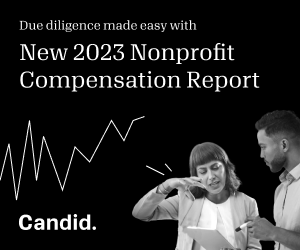Stalling charitable dollars hurts marginalized Angelenos

While our nonprofit, Homeboy Industries, has survived the pandemic through the extraordinary generosity of many people, the societal and economic effects of COVID-19 have made it even harder for individuals who are rebuilding their lives after leaving prison or gang life. As Americans give back during this holiday season, we must direct more resources to charities helping the most marginalized break the systemic cycle of poverty and violence.
According to a 2018 study by the Prison Policy Initiative, formerly incarcerated people are approximately ten times more likely to be homeless than the general public. A 2018 analysis found that the unemployment rate among the formerly incarcerated is over 27 percent, “higher than the total U.S. unemployment rate during any historical period, including the Great Depression.”
Here in Los Angeles, Homeboy Industries provides trainees — formerly gang-involved and incarcerated individuals — a second chance to heal, leave gang life, and become contributing members of society. A key element of our success has been our donors and supporters, whose generosity has enabled us to invest in social enterprise programs that not only create good-quality jobs for our trainees but also serve as a vital source of revenue to help advance our mission.
As a former corporate executive and current CEO of Homeboy Industries, I have witnessed the impact of investing in the most marginalized members of our communities and helping them reenter society with the wraparound support they need. Unlocking charitable dollars means more comprehensive mental health services, workforce development programs, housing initiatives, and access to education, among other services critical to meeting those needs and truly making a difference in the lives of thousands of Angelenos. For nonprofits likes ours and many others, it is critical to ensure that charitable funds actually reach nonprofits in a timely manner.
The fact is, however, that tax rules once designed to get resources to charities now facilitate warehousing resources in charitable intermediaries instead. What used to be a simple connection between charitable tax benefits and benefits to charities has been broken.
Through donor-advised funds (DAFs), donors are now afforded upfront charitable tax benefits — with no assurances that the donation will ever reach working charities. Private foundations, which are required to pay out 5 percent of their assets annually for “charitable” expenditures, can now circumvent the intent of this rule by paying the salaries of family members or putting their funds in a DAF. Rather than distributing these resources to charities, private foundations hold $1.1 trillion while $160 billion sit in DAFs, a report from the National Philanthropic Trust finds. According to the California Association of Nonprofits, the state loses more than $340 million each year as a result of deductions related to DAF donations alone. This matters because warehousing these donations means less money and fewer resources for charities on the front lines of tackling society’s compounding issues such as homelessness, climate change, and massive inequality.
The Accelerating Charitable Efforts (ACE) Act, introduced in Congress earlier this year, reforms charitable tax rules to address these inefficiencies that stall the flow of resources to working charities. The legislation imposes reasonable time periods to distribute tax-subsidized DAF funds to nonprofits and closes loopholes that circumvent the intent of the payout requirement for private foundations.
Charitable giving has been and still is a hallmark of our American society. Thankfully, there are many foundations and DAFs providing vital resources to those most in need. They are doing the right thing, while others are using tax laws to shelter their money instead of using it for the common good. I implore lawmakers to restore our charitable tax rules to their original purpose.
Supporting the ACE Act and getting charitable dollars into our communities faster would make a significant difference for the thousands of charities like Homeboy Industries that support individuals in need. Better to do that this holiday season than to be a grinch and stop reasonable updates to charitable giving rules that are fifty years old.
Thomas Vozzo is CEO of Homeboy Industries, the largest gang intervention, rehabilitation and reentry program in the world. In combination with workforce development and job training in the social enterprise businesses, Homeboy Industries provides healing and alternatives to gang life, while creating more inclusive, safer and healthier communities.






